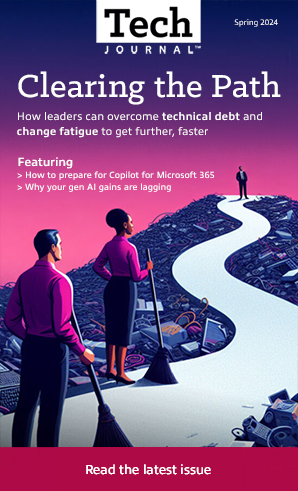Article How Digital Tools Add Value to Higher Education
Today's students want more from the college experience. Here's how the latest technology can help your institution meet their expectations.
By Insight Editor / 15 Feb 2023 / Topics: Cybersecurity

As competition for student enrollment rises, university leaders must find new ways to differentiate the learning experience. Investing in meaningful technology enhancements is an excellent place to start.
Higher education institutions face a unique set of challenges. Students expect advanced learning that will adequately prepare them for the workplace, but colleges must work with limited budgets, overwhelmed IT support and a dispersed student population.
In spite of these challenges, higher education leaders will need to invest in meaningful digital solutions that promote inclusive student experiences and train the digital-first workforce of the future. These three digital tools are vital to adding value to the collegiate experience:
- Artificial Intelligence (AI)
- Gamification/esports
- Hybrid learning tools
Create an intelligent classroom with AI.
In an immersive classroom, pictures are projected to create a virtual atmosphere. Then, instructors can use Virtual Reality (VR) content to transport students to another location, time or event. This hands-on experience can promote greater student engagement and retention.
Another way to use AI in the classroom is to implement models that inform instructors of student progress and enable them to personalize learning based on performance. Learning analytics can also help instructors understand class trends and identify areas where their methods may need adjustment to inspire higher levels of understanding.
Integrate gamification and community with esports.
The higher education experience transcends the four walls of the classroom, providing students with constant opportunities to form relationships, establish a sense of belonging and explore new social experiences.
To expand these opportunities, some universities have begun to offer esports programs — and they’ve become an important recruitment and retention tool. Not only does esports participation help students built career skills, but it also helps them find connections, strengthen their creativity and build confidence.
Collaboration tools improve hybrid learning.
Hybrid learning is here to stay, and if you haven’t yet made a long-term commitment to a digital learning platform, this is a key initiative you should prioritize. By investing in hybrid learning, higher education institutions can expand their enrollment reach, provide learning opportunities to more students and improve the overall classroom experience.
Inclusive and collaborative hybrid learning experiences can include:
- File sharing
- Collecting responses via polls and forms
- Communication about assignments
- Hosting and recording virtual classes
- Facilitating conversations through digital chat tools
By leveraging these tools, you provide students with new ways to communicate and promote innovative approaches to teamwork.
Adding value to the student experience
Digital tools can fuel student curiosity and foster greater inclusivity — and while investing in IT innovation comes at a cost, the risks of failing to provide a modern campus experience can be even greater.
Insight Public Sector has the expertise and experience to help higher education institutions equip faculty and students with innovative technologies. From immersive learning experiences and esports programs to hybrid learning and more, we’re here to help you build a future-ready campus.







